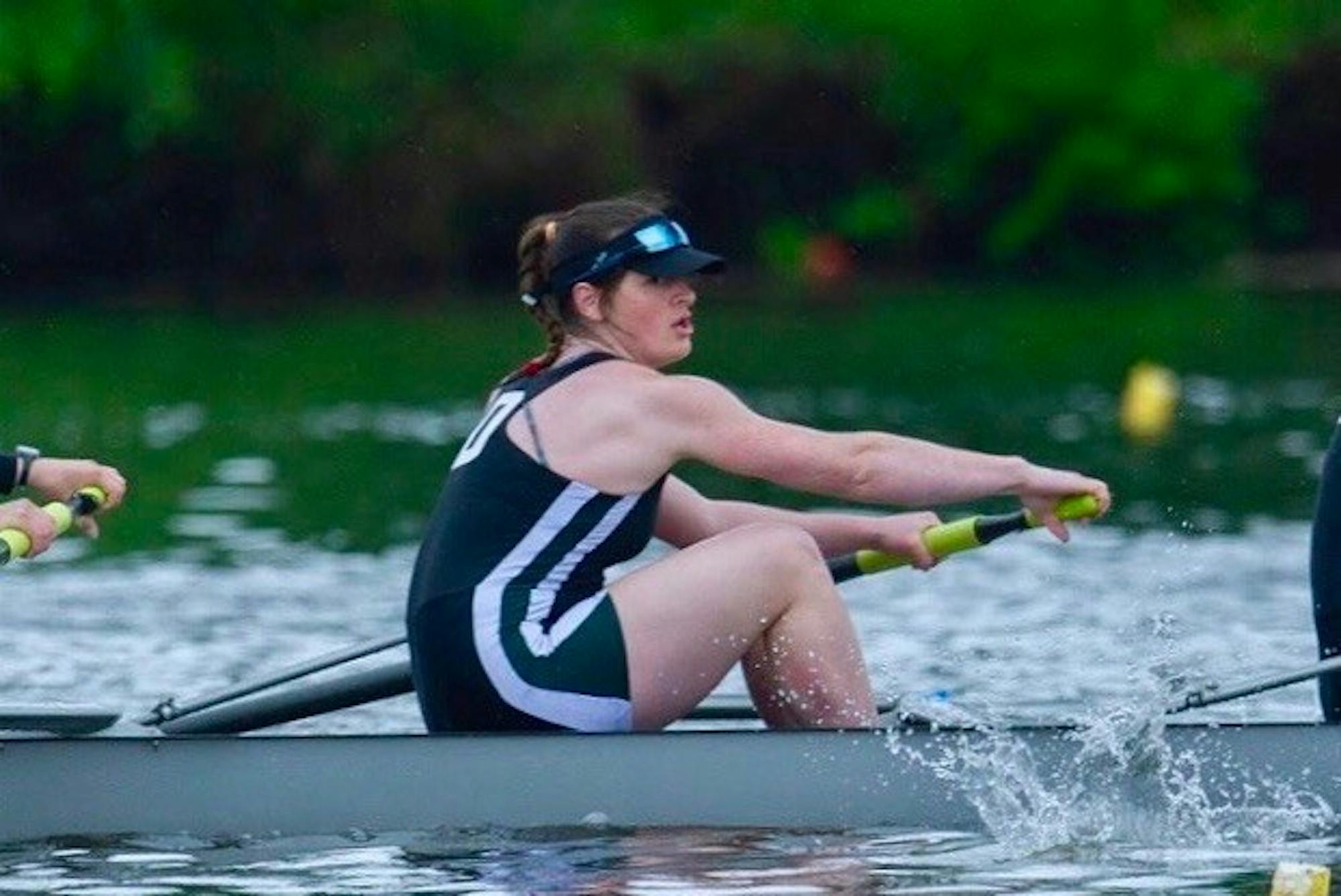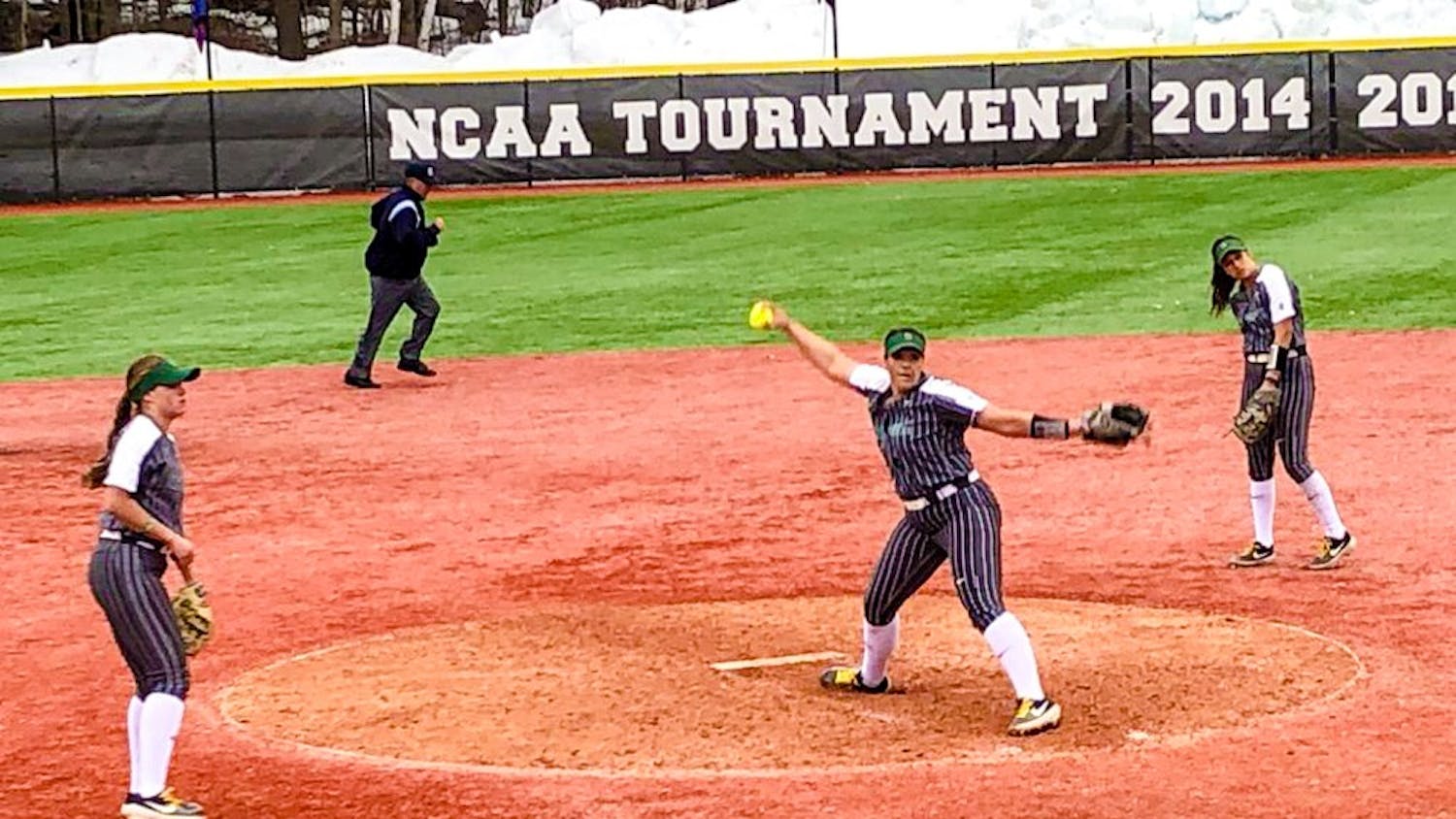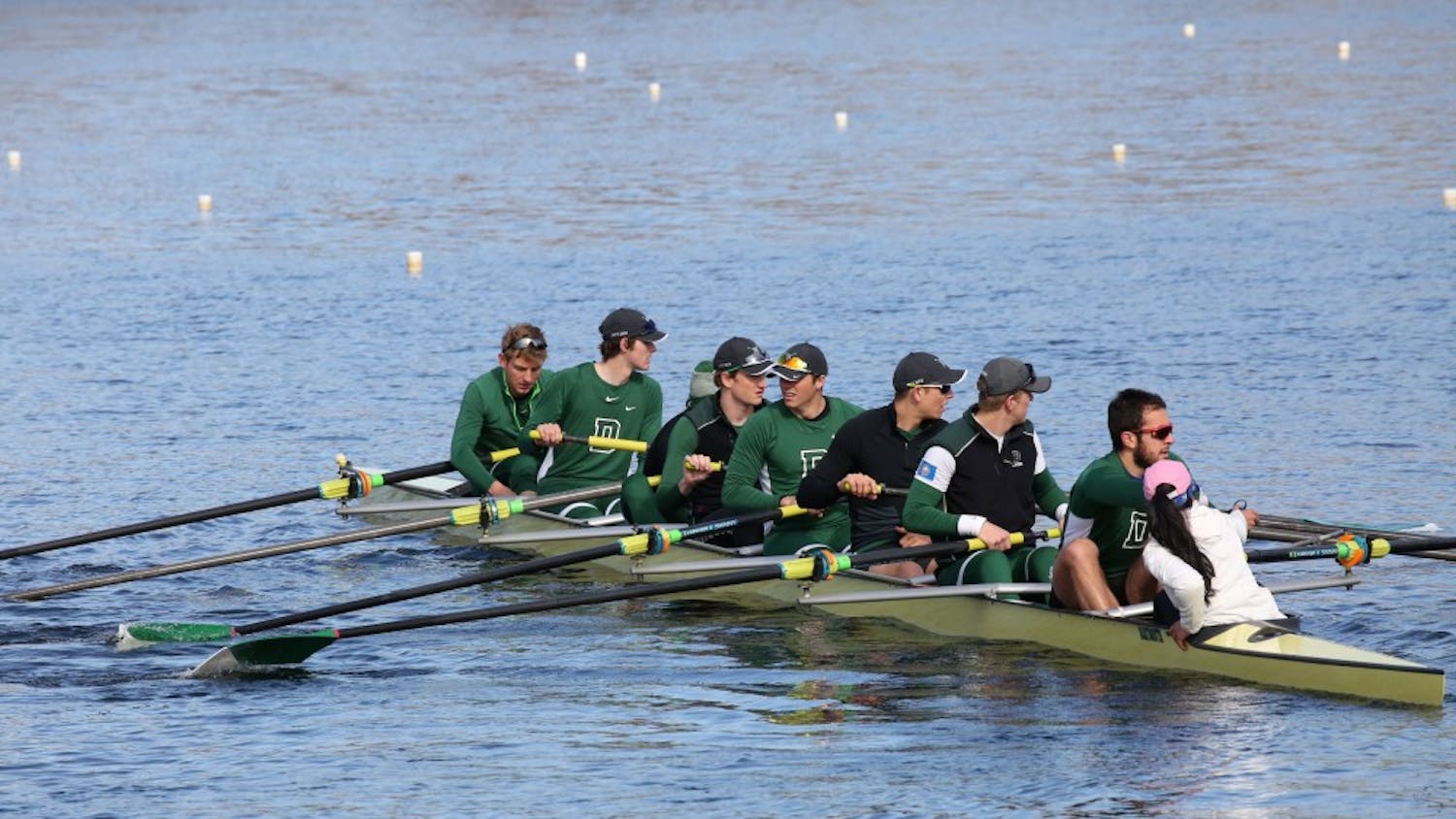The Dartmouth women’s crew team traveled to New Jersey this past weekend for its Ivy League Championship on the Cooper River. In overall team points, the Big Green came in sixth out of eight crews, positioned directly above Cornell University and below the University of Pennsylvania. These results mirror the outcome of the 2018 championships, in which Dartmouth was also wedged in sixth place.
There were three ways for a team to win on Sunday. The title of Ivy League champion went to the victor of the first varsity eight Grand Final, a title Dartmouth has won only twice. The overall team points trophy was awarded to the school with the most points accumulated from the performances of each of their boats. Finally, and for the first time ever, the team with the most NCAA points (from the V8, second varsity eight and varsity four) was automatically given a bid to the NCAA tournament next week. This year, Princeton University won all three of these honors.
According to Dartmouth captain Rebecca Conway ’19, each of the Big Green’s boats had their own goals and challenges going into the races on Sunday, but an overall target for the team was to have every boat make the Grand Final. All but the 2V8 did.
The weather in New Jersey this weekend was hot and sunny, but a strong crosswind that ensured the teams’ coxswains had their work cut out for them to keep their boats moving straight, according to the ESPN announcers on the televised broadcast. Conditions varied throughout the day, but gusts capped out at just about 20 miles per hour. This wind shook up the lane assignments a bit, according to the broadcast; lanes five and six were protected from the wind and consequently became the preferred positions, given to the highest placing boats in the morning preliminary races.
Dartmouth’s V8 came in third out of four in its preliminary heat, beating Columbia University by just under six-tenths of a second and earning the sixth and final spot in the grand final. This time put the crew in lane one Sunday afternoon, where it battled the crosswind for just over seven minutes and six seconds. This time placed the boat in sixth, roughly 42 seconds behind gold-winning Princeton, but Cara Cavanaugh ’19 qualified for the All-Ivy First Team for her efforts.
The Big Green’s 2V8 came in last in their preliminary, relegating the crew to the Petite Final. There, the boat dueled Columbia for a decisive, open-water victory by a margin of 12.5 seconds.
All three of Dartmouth’s V4s raced in their Grand Finals. The V4A came in fifth of six, the V4B last of seven and the V4C fourth of five.
The Ivy League championship capped off a season that captain and V8 coxswain Katie Erdos ’20 described as a “whirlwind.” As Erdos explained, the Connecticut River took a particularly long time to thaw this year, and once it did, there was an abnormal amount of debris getting in the way of the team’s practices.
With very little time practicing on the water, the Dartmouth women came in seventh overall out of 12 teams at the Doc Hosea Invitational on March 30. The team then traveled to Princeton, NJ for the Ivy League Invitational on April 7 with the Connecticut still in bad shape, according to Erdos. There, the Big Green faced some of the same teams it met this past weekend at the Ivy championships. In its first and last regatta at home on the Connecticut, the team took control of its home-river advantage and swept Boston University in every race.
According to Conway, weather problems are a frequent scourge on the Connecticut, but having a river to yourself has its benefits.
“It’s really fun racing at Dartmouth ... because you get this sense that you can really isolate yourself if you want to,” Conway said. “So, we’re really excited to come out and kind of blow everyone out of the water with the changes we’ve made and what we’ve be able to do on our own.”
Erdos said that the Clemson Invite regatta the weekend of April 19 was a good representation of the ups and downs the Big Green faced throughout its spring season. After waiting to race through delay after delay, the regatta was ultimately cancelled because of tornado warnings in the area.
“It was a moment that stands out in terms of our team being super cohesive and able to roll with the punches ... and race our best race, no matter when that is or what the weather conditions are,” Erdos said.
The new expansion of the team’s boathouse and training facility, projected to be completed in time for the fall of 2019, is meant to help the team get the training they need despite less-than-ideal weather conditions. New moving-water rowing tanks, for instance, will simulate practice on the water while the Connecticut is frozen over.
Beyond the promise of the boathouse expansion, Conway and Erdos said they are optimistic about the team’s future, encouraged by how much young talent it has. Only nine of the 39 rowers on its roster are upperclassmen, and the team will only graduate five seniors this year. With at least one freshman in each of its boats this past weekend, Dartmouth has a depth of talent that promises to last into the next few years, as new classes bring in still more speed.




